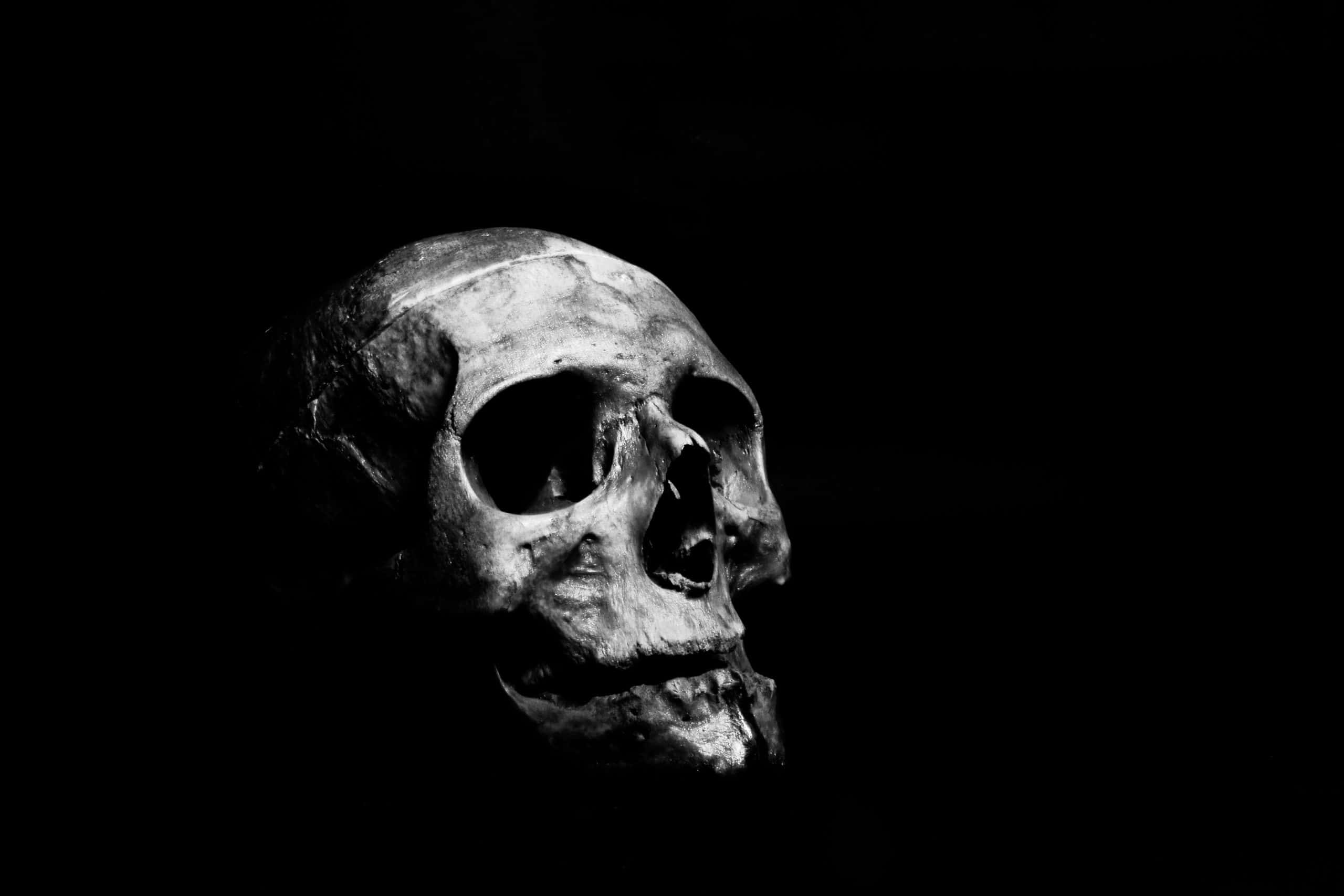Teresa of Avila, saint, mystic, reformer of the Carmelite order, founder of the Discalced Carmelites and . . . angry with God. That last one doesn’t seem to fit with the others. But there is a story I’ve heard of St. Teresa. One day, while riding her horse, she fell off, landed in mud, and in a moment of anger yelled to the heavens, “if this is how you treat your friends, it’s no wonder you have so few of them.” It’s hard for me to reconcile the idea of this mystic and saint being angry with God but saints were humans long before they were called saints. And even the saintliest among us is prone to a little frustration when things go south.
Teresa’s outburst draws my attention because it hits a nerve. Why would God let Teresa of Avila, one of His most faithful servants, fall off her horse? Why would God let anything bad happen to someone good? This question haunted another saint, Augustine of Hippo, from his youth. In his autobiography, Confessions, which details his early life, his thoughts about the world, and ultimately, his conversion to Christianity, Augustine wrestles with this same question. Augustine tells of the death of a close friend in his early years, and it prompts him to wonder, “why do bad things happen?”
These two great saints wrestled with a problem we all struggle with: the question of evil. Why is evil present in the world? Why would a loving God allow bad things to happen to good people? Why would God allow Augustine’s friend to die or Teresa to fall from her horse? Or perhaps, more practically, why would God allow millions of people to die worldwide from COVID or from hunger? Why would God allow children to be born poor, or to be abused and neglected? When these questions are asked, those of us who believe in a loving and compassionate God are often left unable to provide satisfactory answers. Frankly, if we’re honest, we probably find ourselves puzzled over the exact same questions.
To the problem of evil in the world, Augustine proposed a two-part answer. His first answer to the question, “why do bad things happen” is, well, people. In The City of God, Augustine writes, “For when the will abandons what is above itself [God], and turns to what is lower, it becomes evil . . .” Augustine argues that one’s will or desire, when turned away from God, is what causes us to sin. Sometimes, bad things happen because people cause them to happen. Sometimes we put something other than God, like our own success, or our own pleasure, above everything else, and this can cause problems. Abuse, neglect, and poverty are all a result of our actions, or lack of actions. We can cause others to suffer and this, Augustine suggests, is one reason evil exists in the world.
Augustine argues that this human-made evil can hardly be blamed on God. Why did Teresa fall from her horse? Maybe riding a horse through the mud in a Carmelite habit isn’t a great idea to begin with. But to the more pressing questions, hunger, poverty, war, or abuse, Teresa writes, “Christ has no body but yours, no hands no feet on earth but yours . . .” Despite her frustration with God, Teresa also seems to recognize that we humans hold a great deal of responsibility for the bad—and the good—around us.
But this first part of Augustine’s answer doesn’t address a more troubling aspect of evil. It’s hard to blame millions of deaths from Coronavirus to human actions, or lack of actions, just like it’s hard to explain why good people die in earthquakes, or fires, or from disease. Some evil seems impossible to blame on human actions, it just seems to occur at random, affecting those who we may secretly think deserve it, along with those who couldn’t possibly deserve such tragedy. Sometimes bad things happen to good people and it’s hard to explain why. For this, Augustine has a second, more complicated answer.
In Matthew 5:45, the evangelist writes that “. . . He causes his sun to rise on the evil and the good, and sends rain on the righteous and the unrighteous.” Augustine interprets this to mean that God blesses those who act justly as well as those who act unjustly and that, in a similar way, events that may seem bad, happen to those who are good and to those who aren’t good. Augustine argues that an action isn’t good or bad based on our perception, or how it makes us feel in the moment. Rather, the outcome is the key. What happens after the fact is really what determines whether an event is good or bad. Eating Snickers bars on the couch all day while binging Netflix seems great, but if it leads to a feeling of emptiness and isolation, it’s hard to call this good. On the other hand, getting a tooth pulled hurts like hell, but if it leads to a healthier mouth, the pain may be a pathway to a better life.
If you’re reading this and you find this answer unsatisfactory, you aren’t alone. In moments when I’m suffering, it’s almost impossible for me to imagine a kind and compassionate God at work in my life, and anyone who has the nerve to suggest it’s “part of God’s plan” makes me homicidally angry. But the challenge with seeing God at work in and around us is that God is most visible in the rearview mirror.
Since becoming a Jesuit, I’ve become a fan of journaling. Jotting down ideas, things I’m grateful for, and challenges I’ve faced can help me bring closure to my day. While sometimes I can almost immediately see God’s presence in my life, usually the more challenging an event, the more distance I need to see God’s at work. In Confessions Augustine shares his own experience with perspective, “. . . I had no divine context for what my mind picked up . . . I was standing with my back to the light, so that the things that should be illuminated were in shadow, even though they were in front of my face.” Similar to how you need some distance from a huge object to be able to see it entirely, Augustine needed to get out of the way and let the light shine through to be able to see what was in front of him. While it can seem impossible to recognize God’s presence during difficult moments, when I flip back months or even years in my journals, I can see how moments that I was sure would be the end of me, have been sources of grace and great growth. A little perspective, and a little distance, let the light shine through to illuminate God laboring lovingly in my life.
While this may not be very comforting if you find yourself in a place of pain right now, write down what hurts. Try to describe in detail how this gut-wrenching event is going to be the end of you and put these notes somewhere safe. Revisit these notes down the road, when the dust has settled, and try to see if you can connect these painful events to something good in your life. While no one can convince you that the pain you’re going through may later lead to something good, one day you may be able to look back on this period and see how something you thought you couldn’t survive was transformed into a source of grace. I can’t tell you that something bad will lead to something good. But maybe you don’t need me to, maybe, one day, you’ll be able to tell yourself.
A little trouble should be expected in life. It is our human nature to get sick, to grow old and to die. Death is, ultimately, a part of life. And just like our bodies break down with time, we can expect that good things will eventually change. The occasional flat tire, or dead battery is part of the experience of owning a car, the joy of owning a dog comes with the frustration of another shoe destroyed or another pair of glasses eaten. Just like the benefit of a car or a dog comes with the frustrations, love also comes with loss. We will, it seems, be separated for a time from those we love. But that separation isn’t permanent. Our memories and our faith keep us close until we can be united again. The journey is a beautiful one, even if we hit some bumps along the way.


